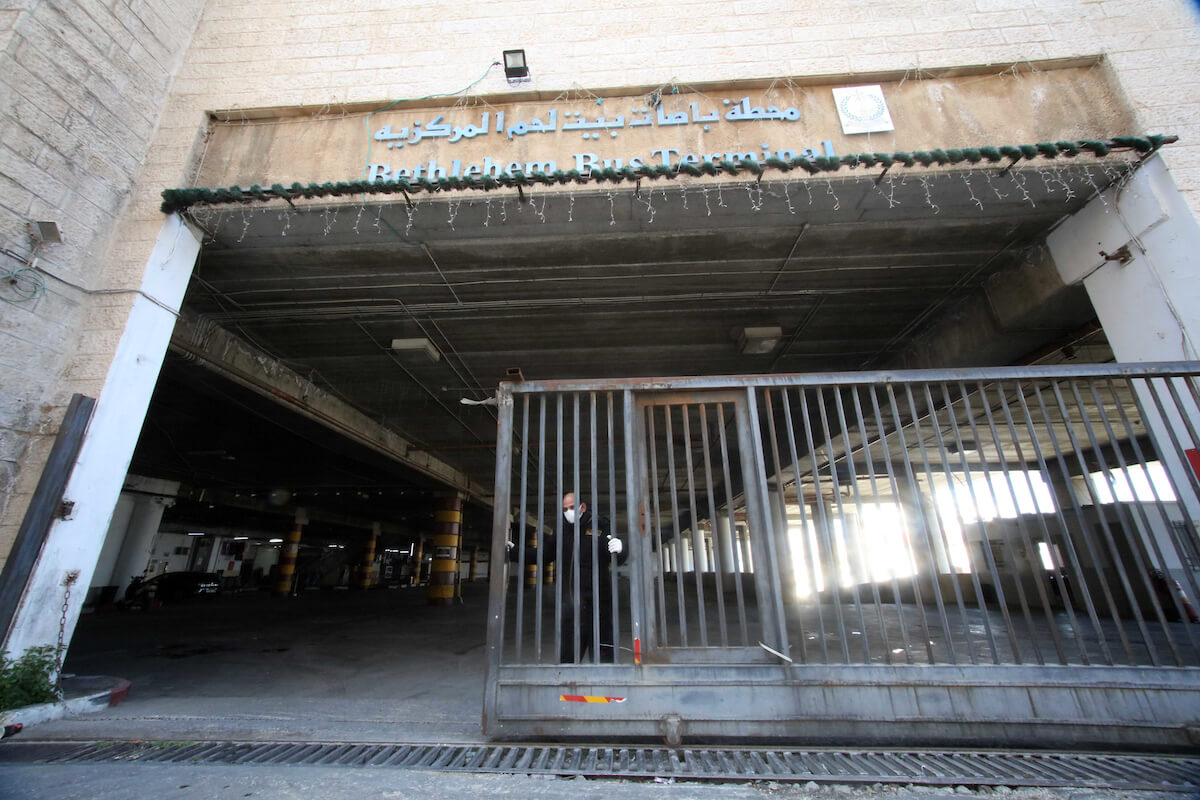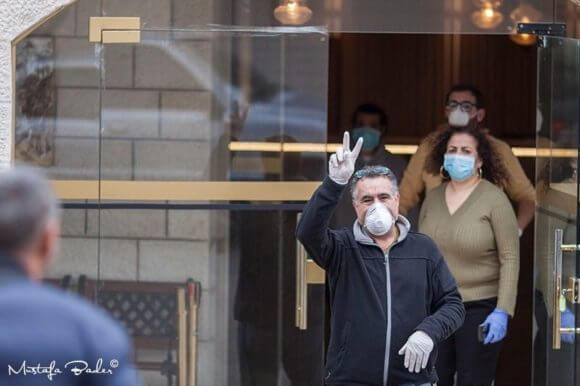This is the first in a series of dispatches filed by our Palestine correspondent, Yumna Patel, who lives in Bethlehem, the epicenter of the coronavirus outbreak in Palestine. As the crisis continues to develop, Yumna will paint a picture of what daily life looks like in the city, the emotions of the people, and her own personal thoughts and fears. This email will be published twice a week.
[mailpoet_form id=”5″]
The past two weeks have been a roller coaster of emotions for the people of Bethlehem. It’s been 15 days since a state of emergency was declared and the city was put under lockdown after four cases of the coronavirus were confirmed.
Since then, the number of people in the streets has steadily declined, as the number of confirmed cases has continued to rise, albeit slowly, relative to the rapidly growing crisis on the other side of the wall.
It goes without saying that people are scared. You can’t get through a single conversation without mention of “corona” in the first five seconds.
But despite the lockdown and increased restrictions on movement throughout the city, there was an air of optimism in the city. For the most part, people were happy with the degree of success with the PA was apparently dealing with the situation.
Anyone you spoke to proudly mentioned that Palestine was the “second best country”, behind China, to deal with and rapidly respond to the coronavirus. After numerous Google searches, I’ve still yet to find confirmation of that fact.
Accurate or not, the sentiment behind the rumor was clearly having a positive effect on people.
Afterall, over the course of two weeks, we still had less than 50 confirmed cases, compared to 500 in Israel.

For the most part businesses have stayed closed, with the exceptions of grocery markets, and people have stayed in their homes. In a culture deeply rooted in socializing and community ties, people were practicing “social distancing” relatively well.
Despite the majority of the city — who rely on tourism and work in Israel — being out of work, people have been following the government’s orders with little push back.
But just as it seemed like we might be getting out of this mess sooner rather than later, things seemed to take a turn for the worse on Wednesday night.
Bethlehem and its neighboring towns, Beit Sahour and Beit Jala, were placed under full lockdown. With the exception of journalists, health and security officials, and special humanitarian cases, no one would be allowed to leave their homes. Anyone caught violating the lockdown, would be subject to a fine.
Anyone found to be violating a self-isolation or quarantine order, would be fined up to 1,000 Jordanian dinars.

The strict measures came after it was discovered that people who were suspected of having the virus had ignored their home quarantine order, and moved around the city in the past few days.
Following the news of the lockdown, the city was the busiest it had been in weeks, as we rushed to the stores to stock up on food and supplies, not knowing when we would be able to next.
In the refugee camp where I live, the volunteers from the local centers were handing out bags of produce and other essentials to families with particularly tough financial situations.
Despite the panic, the scenes were much more civilized than ones coming out of the United States. The shelves here were well stocked, even with toilet paper, and no one seemed to be hoarding. People were getting what they needed.
As neighbors ran into each other, they forgoed the urge to shake hands and exchange the traditional kiss on the cheek, opting instead for a smile and a hand on the heart.
As people filled their carts with essentials like flour, oil, salt, and different hygiene products, there was a sense of frustration amongst shoppers: because of the disregard of a few people, the whole city was now suffering even more than we were before.
The supermarkets buzzed with chatter about the “selfishness” of the people who violated the quarantine, and rumors as to how long the new lockdown would ask.
Now, more than ever, people seemed to really understand and take to heart how much their actions could affect the lives of everyone around them.
Everyone I know, myself included, has been glued to the news all hours of the day and night. It’s not easy to drown out the noise, and the anxiety that comes along with it.
Seeing the healthcare systems of some of the richest countries in the world on the brink of collapse makes it even harder to shake the thought of, what would happen if the outbreak were to escalate in a place like Palestine?
Surely, the already under equipped and underfunded hospitals would not be able to sustain even a fraction of what countries like Italy are experiencing. If these initial containment efforts fail, it could spell disaster for the Palestinian healthcare system, economy, and for the people.
But just as the feelings of fear and frustrations seemed too overwhelming, we received a much needed bit of good news on Friday.
Seventeen of the original COVID-19 patients who were being quarantined in the Angel Hotel in Beit Jala and the Paradise Hotel in Bethlehem were officially in recovery, bringing the number of confirmed cases down to 31.
Videos of smiling patients waving their hands as they left the hotel were circulated around social media, putting smiles on all of our faces, and restoring a sense of hope in the city.
It’s going to be a long road ahead, but we might just get through it.




Good luck to you Yumna Patel, and hope you will continue to be safe. Hope your friends and family will be spared from this terrible pandemic, even under difficult circumstances.
Keep your spirits up, and know you are appreciated here.